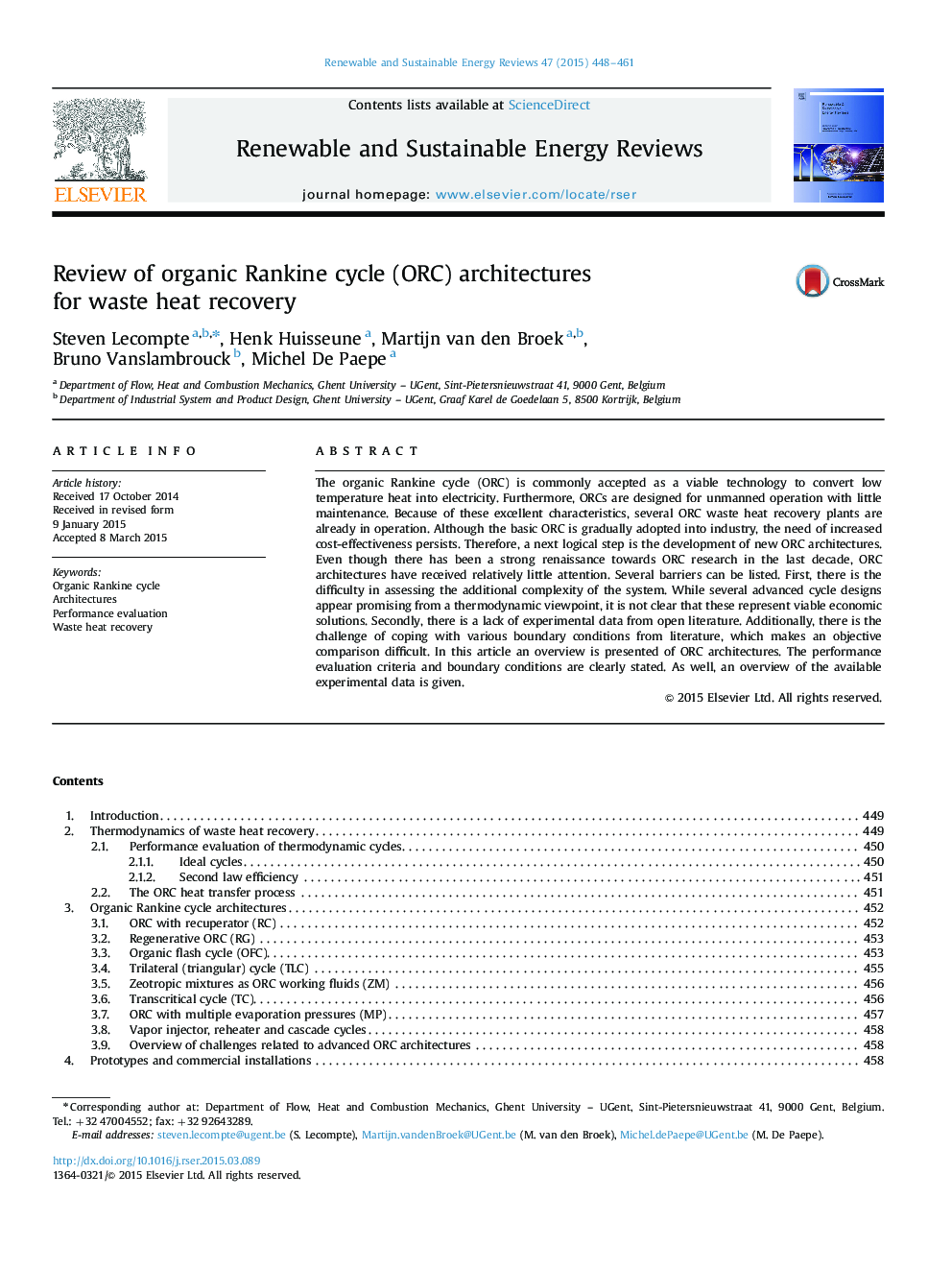| Article ID | Journal | Published Year | Pages | File Type |
|---|---|---|---|---|
| 8116796 | Renewable and Sustainable Energy Reviews | 2015 | 14 Pages |
Abstract
The organic Rankine cycle (ORC) is commonly accepted as a viable technology to convert low temperature heat into electricity. Furthermore, ORCs are designed for unmanned operation with little maintenance. Because of these excellent characteristics, several ORC waste heat recovery plants are already in operation. Although the basic ORC is gradually adopted into industry, the need of increased cost-effectiveness persists. Therefore, a next logical step is the development of new ORC architectures. Even though there has been a strong renaissance towards ORC research in the last decade, ORC architectures have received relatively little attention. Several barriers can be listed. First, there is the difficulty in assessing the additional complexity of the system. While several advanced cycle designs appear promising from a thermodynamic viewpoint, it is not clear that these represent viable economic solutions. Secondly, there is a lack of experimental data from open literature. Additionally, there is the challenge of coping with various boundary conditions from literature, which makes an objective comparison difficult. In this article an overview is presented of ORC architectures. The performance evaluation criteria and boundary conditions are clearly stated. As well, an overview of the available experimental data is given.
Related Topics
Physical Sciences and Engineering
Energy
Renewable Energy, Sustainability and the Environment
Authors
Steven Lecompte, Henk Huisseune, Martijn van den Broek, Bruno Vanslambrouck, Michel De Paepe,
